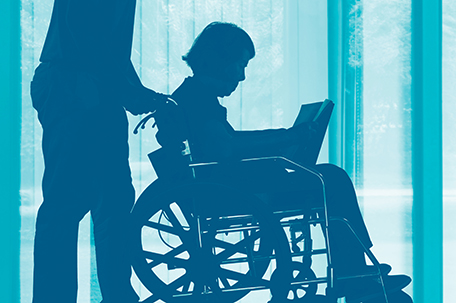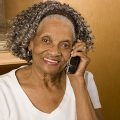
BPT
COVID-19 has dramatically shifted daily life for many people around the world. Nobody is immune, according to the Centers for Disease Control and Prevention, and older adults and individuals with chronic health conditions are at higher risk of getting very sick from the coronavirus.
To protect vulnerable individuals, many nursing homes or assisted living facilities are banning outside visitors temporarily in hopes of limiting residents’ exposure to someone who may be infected with the virus. Additionally, many individuals who need care and are currently living in their own homes are feeling isolated and anxious about how to stay healthy and safe.
Caregiving is now taking center stage. With already more than 40 million unpaid family caregivers helping loved ones in the U.S., experts expect the virus to increase the number of people providing short-term or long-term care to an older or aging loved one.
AARP offers guidance to family caregivers with vulnerable family members, especially those who might be new to caregiving because of Coronavirus and its impacts on older populations.
Make it a team effort
While there may be one primary family caregiver, identify other family members, friends and neighbors who can check in or help with shopping and important errands. It’s important that the person you’re caring for doesn’t leave their home and stays out of public places.
Create a list with contact information of friends, family and services in your community that can help you perform key caregiving tasks. For example, find out if services such as Meals on Wheels can help deliver meals, or if there are other local services to help with food or medication delivery.
Inventory essential items
It’s important to figure out what you have so you can determine what you need. Inventory how much food, medication and basic supplies the person you’re caring for has currently. Then make a list of what you need and how often you need to replenish it.
Many older individuals often keep minimal extras on hand because they are on a strict budget and are used to regular grocery or medication refills. If possible, help them have a two-week supply of food, water, house cleaning supplies, and medical equipment.
Get medications in order
If you don’t already have one, create a list of medications, medical contacts, and important information like allergies for easy access. If there are upcoming non-emergency, routine medical appointments, reschedule those or, if possible, switch to a virtual visit to receive telemedicine.
Ask your pharmacist or health care provider if you’re able to have an extra 30-day supply of essential medications on hand. Don’t forget to stock up on over-the-counter medications like cough suppressants and fever-reducing drugs like acetaminophen.
Stay connected
With current social distancing recommendations, strict isolation will impact many older individuals. To keep connections strong, set up communication using a variety of technology such as FaceTime or Skype, smart speakers, or simply phone and text. Use these to stay connected with your caregiving team as well as your older or aging family members.
If your loved one lives in a long-term care facility, see if they have accommodations for online visits and how they plan to communicate with families. If they can’t support visits via technology, send in cards, letters, magazines, puzzles or other items you know your loved one would be grateful to receive. Talk with your facility management about the safest way to deliver items.
Maintain personal safety and self-care
In order to help slow the spread of the coronavirus, limit physical contact with others, stay in as much as you can and continue to follow guidelines from the CDC. While you are likely very focused on the person you’re caring for, it is essential to also care for yourself.
For high-risk individuals, such as those with dementia and underlying health conditions, consider having the primary caregiver self-isolate with the care recipient. Then, have a back-up plan if the primary caregiver becomes ill. It’s best to be proactive and not have to use plan B, rather than being caught off guard without options.
For more information about caregiving and important considerations in light of COVID-19, visit aarp.org/caregiving and aarp.org/coronavirus.

















Leave a Comment